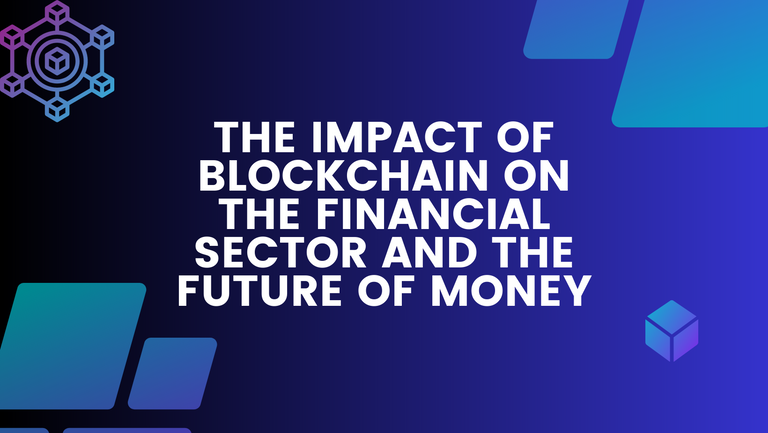Unleashing the Power of Blockchain: Shaping the Future of Technology and Business

The Impact of Blockchain on the Financial Sector and the Future of Money
Blockchain technology has been hailed as one of the most disruptive innovations in recent years. Its decentralized and transparent nature makes it a perfect fit for the financial industry, which is notoriously centralized and opaque. In this article, we will explore the impact of blockchain on the financial sector and how it is shaping the future of money.
Introduction
The traditional financial system has been around for centuries and has served us well. However, it has its shortcomings. It is slow, expensive, and prone to fraud and errors. Blockchain technology has the potential to solve these issues and transform the financial industry.
What is Blockchain Technology?
Blockchain technology is a decentralized digital ledger that records transactions in a secure and transparent manner. It operates on a peer-to-peer network, and each participant in the network has a copy of the ledger. Transactions are verified and validated by the network, eliminating the need for intermediaries like banks and clearinghouses.
How Blockchain is Disrupting the Financial Sector
Faster and Cheaper Transactions
Blockchain technology enables near-instantaneous and low-cost transactions. It eliminates the need for intermediaries, which reduces transaction fees and speeds up settlement times.Improved Security
Blockchain technology provides a high level of security through its decentralized and encrypted ledger. Transactions are verified and validated by the network, making it virtually impossible to tamper with or alter them.Enhanced Transparency
Blockchain technology provides a transparent and auditable record of transactions. Each transaction is recorded on the blockchain, and each participant in the network has a copy of the ledger. This eliminates the need for trust in intermediaries and provides greater transparency to regulators and customers.Smart Contracts
Blockchain technology enables the creation of smart contracts, which are self-executing contracts that automate the negotiation and execution of agreements. This eliminates the need for intermediaries and reduces the risk of fraud and errors.
The Future of Money
Blockchain technology has the potential to transform the financial industry and the way we transact value. Here are some of the ways it could shape the future of money:
Decentralized Finance (DeFi)
Decentralized Finance (DeFi) is a fast-growing sector of the blockchain industry. It refers to financial services that are built on decentralized networks, enabling users to access financial services without intermediaries. DeFi has the potential to democratize access to financial services and create a more inclusive financial system.Central Bank Digital Currencies (CBDCs)
Central Bank Digital Currencies (CBDCs) are digital versions of fiat currencies issued by central banks. They are built on blockchain technology and have the potential to provide a more efficient, secure, and transparent payment system.Tokenization of Assets
Blockchain technology enables the tokenization of assets, which refers to the representation of physical assets as digital tokens on a blockchain. This creates new opportunities for fractional ownership, liquidity, and investment in previously illiquid assets like real estate and art.
Conclusion
Blockchain technology is a disruptive force in the financial industry and has the potential to transform the way we transact value. It enables faster and cheaper transactions, improved security, enhanced transparency, and the automation of contracts. The future of money is likely to be decentralized, digital, and powered by blockchain technology.
There is reasonable evidence that this article is machine-generated. Posting such content is considered fraud.
Fraud is discouraged by the community and may result in the account being Blacklisted.
Guide: Why and How People Abuse and Defraud
If you believe this comment is in error, please contact us in #appeals in Discord.